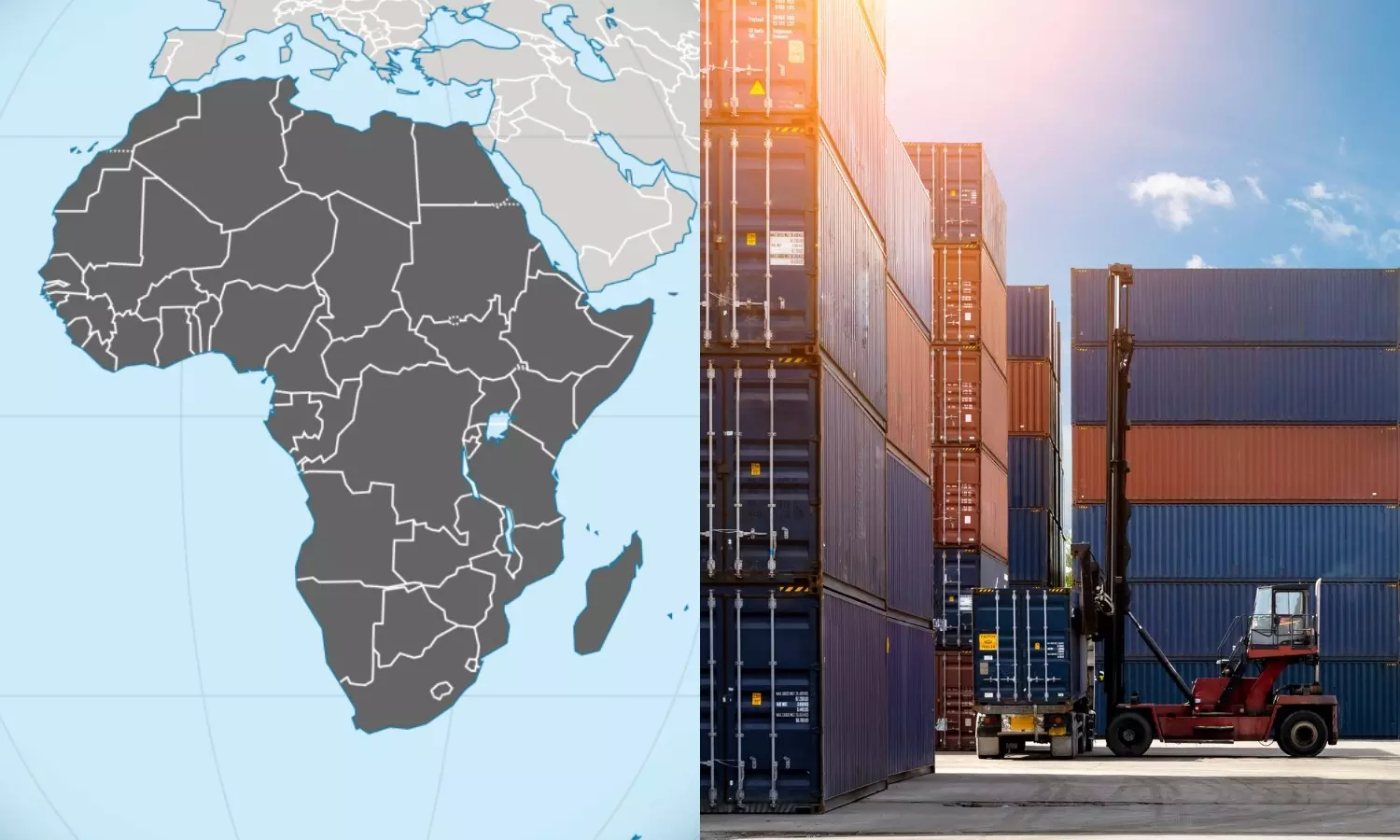Africa's role in the global supply chain: Opportunities and challenges
To achieve growth, a coordinated effort is required from governments, businesses, and international organisations.

Africa, the world's second-largest continent, is increasingly becoming a crucial player in the global supply chain. With its expanding consumer market, improving infrastructure, and growing emphasis on regional integration, the continent holds immense potential as a major hub for international trade. Yet, while the opportunities are promising, Africa must overcome significant hurdles to realise its full potential in the global economy.
One of the most significant drivers of Africa’s rising importance is its growing middle class, which is boosting consumer spending power. According to the African Development Bank, Africa's consumer spending is expected to reach $2.1 trillion by 2025 and $2.5 trillion by 2030. This surge in demand has made Africa an attractive destination for international businesses. Global companies such as Walmart, Shoprite, and Nestlé have already established their presence, and others are keen to tap into the vast market opportunities offered by the continent’s burgeoning consumer base.
Investment in infrastructure is pivotal to unlocking Africa’s economic potential. The African Development Bank estimates that at least $130 billion must be invested annually in infrastructure to meet the continent’s developmental objectives. Improving connectivity through better roads, railways, ports, and logistics facilities is crucial to increasing Africa’s competitiveness in the global supply chain. Recognising this, governments and private sector entities have taken steps to address these infrastructure gaps. The African Continental Free Trade Area (AfCFTA) has prioritised infrastructure development, while countries such as Kenya, Nigeria, and South Africa are heavily investing in new transport and trade corridors to facilitate economic growth.
In addition to infrastructure advancements, the diversification of exports is playing an increasingly important role in strengthening Africa’s integration into global trade. Historically, Africa’s economy has relied heavily on the export of commodities such as oil, gas, and minerals. However, the continent is now broadening its economic base. Nations like Ethiopia, Kenya, and Rwanda are developing industries such as textiles, horticulture, and technology. For instance, Ethiopian Airlines has emerged as a major player in the global air cargo market, efficiently transporting goods like flowers, vegetables, and textiles to destinations worldwide. Similarly, Kenya's horticulture industry has grown into a global powerhouse, exporting fresh produce and flowers to Europe and beyond.
Regional integration is another key factor reshaping Africa’s role in the global supply chain. The AfCFTA, which came into effect in January 2021, aims to create a single market comprising over 1.3 billion people with a combined GDP exceeding $3.4 trillion. This ambitious agreement seeks to promote intra-African trade, reduce tariff barriers, and streamline customs procedures, thereby making it easier for businesses to operate across borders. The potential impact of the AfCFTA is monumental, as it could transform Africa into a cohesive and competitive economic bloc.
Despite these encouraging developments, Africa continues to face a host of challenges that hinder its ability to maximise its potential in the global supply chain. Infrastructure remains one of the most significant obstacles. Many countries lack the necessary roads, ports, and logistics facilities to support efficient trade and transport. In some areas, poor infrastructure leads to delays, increased costs, and diminished competitiveness. Addressing these gaps is essential for Africa to fully integrate into international supply chains.
Another pressing challenge lies in bureaucratic inefficiencies. Complex and time-consuming customs procedures, along with inconsistent regulatory frameworks, often impede trade. Businesses operating in Africa frequently encounter delays at borders, which increase operational costs and reduce the ease of doing business.
Security concerns also pose a significant threat to Africa’s supply chain capabilities. Issues such as piracy, terrorism, and regional conflicts can disrupt trade routes and deter international businesses from establishing operations on the continent. Governments must prioritise enhancing security measures and fostering stability to build confidence among investors and trading partners.
Limited skills and capacity in logistics and supply chain management further restrict Africa’s ability to compete on a global scale. While the continent has a young and dynamic workforce, many lack the technical expertise required to operate in specialised fields like supply chain optimisation and technology-driven logistics. Expanding access to education and training programmes in these areas is vital for developing a competitive workforce capable of meeting global standards.
Despite these challenges, success stories abound, showcasing Africa's potential to thrive in the global supply chain. Ethiopian Airlines, for example, has leveraged its strategic location and robust infrastructure to establish itself as a leader in air cargo services. Its efficient operations have enabled the transportation of goods such as flowers and textiles to markets worldwide, earning the airline a reputation for reliability and innovation.
Kenya’s horticulture industry is another standout example of success. Over the years, the sector has transformed into a multi-billion-dollar industry, providing employment to thousands and contributing significantly to the country's GDP. By adopting modern farming practices and investing in export logistics, Kenya has positioned itself as a major supplier of high-quality flowers and fresh produce to global markets.
Similarly, Rwanda’s burgeoning textile industry has attracted international investment, with companies like Volkswagen and General Electric establishing manufacturing facilities in the country. By focusing on value addition and adopting a business-friendly approach, Rwanda has demonstrated how smaller economies can successfully integrate into global supply chains.
These success stories highlight the opportunities that exist for African businesses to excel on the international stage. They also underscore the importance of strategic investment, innovation, and collaboration in overcoming challenges and unlocking Africa’s full potential.
To achieve sustainable growth, a coordinated effort is required from governments, businesses, and international organisations. Significant investment in infrastructure must remain a priority, with a focus on building roads, railways, ports, and digital connectivity to facilitate efficient trade. Simplifying customs procedures and harmonising regulatory frameworks will be equally important in reducing trade barriers and fostering a competitive business environment.
Improving security is another critical area that demands attention. Governments must address the root causes of instability and collaborate with international partners to enhance safety across trade routes. Strengthening regional cooperation through initiatives like the AfCFTA can also help in addressing security concerns collectively.
Equally important is the need to develop skills and capacity in logistics and supply chain management. By investing in education and vocational training, African nations can create a workforce that is well-equipped to meet the demands of a modern economy.
As the global economy continues to evolve, Africa’s ability to adapt and innovate will be key to its success. With the right investments, policies, and partnerships, the continent can achieve its vision of becoming a thriving and integrated part of the global supply chain.


